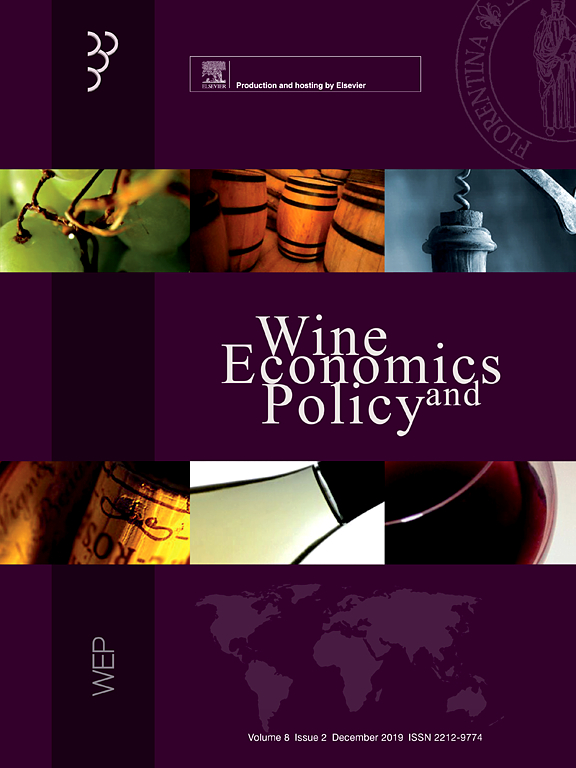Published 2019-06-02
Keywords
- Preferences,
- Wine,
- Heterogeneity,
- Latent class,
- Mixed logit
How to Cite
Abstract
The general decline in per capita consumption of wine worldwide over recent decades reveals the need to apply effective marketing strategies to capture segments of the population, such as young people or women, who tend to consume wine sporadically and in small amounts, even among traditional wine-producing countries. However, until now these strategies have been designed considering these segments as homogeneous groups, when in fact they are not. In this paper, several discrete choice models are used to incorporate the unobserved heterogeneity present in individuals’ decisions, such as mixed or latent class models, with the aim of identify the socio-demographics profiles of individuals who consume a certain amount of wine per week. The results highlights the superiority of these models and the variability individuals׳ characteristics due to heterogeneity.

